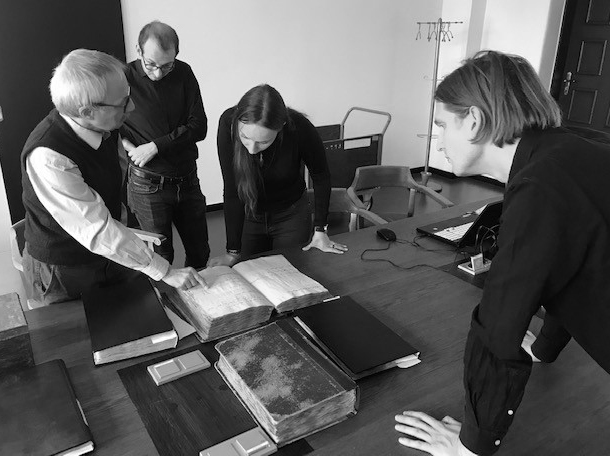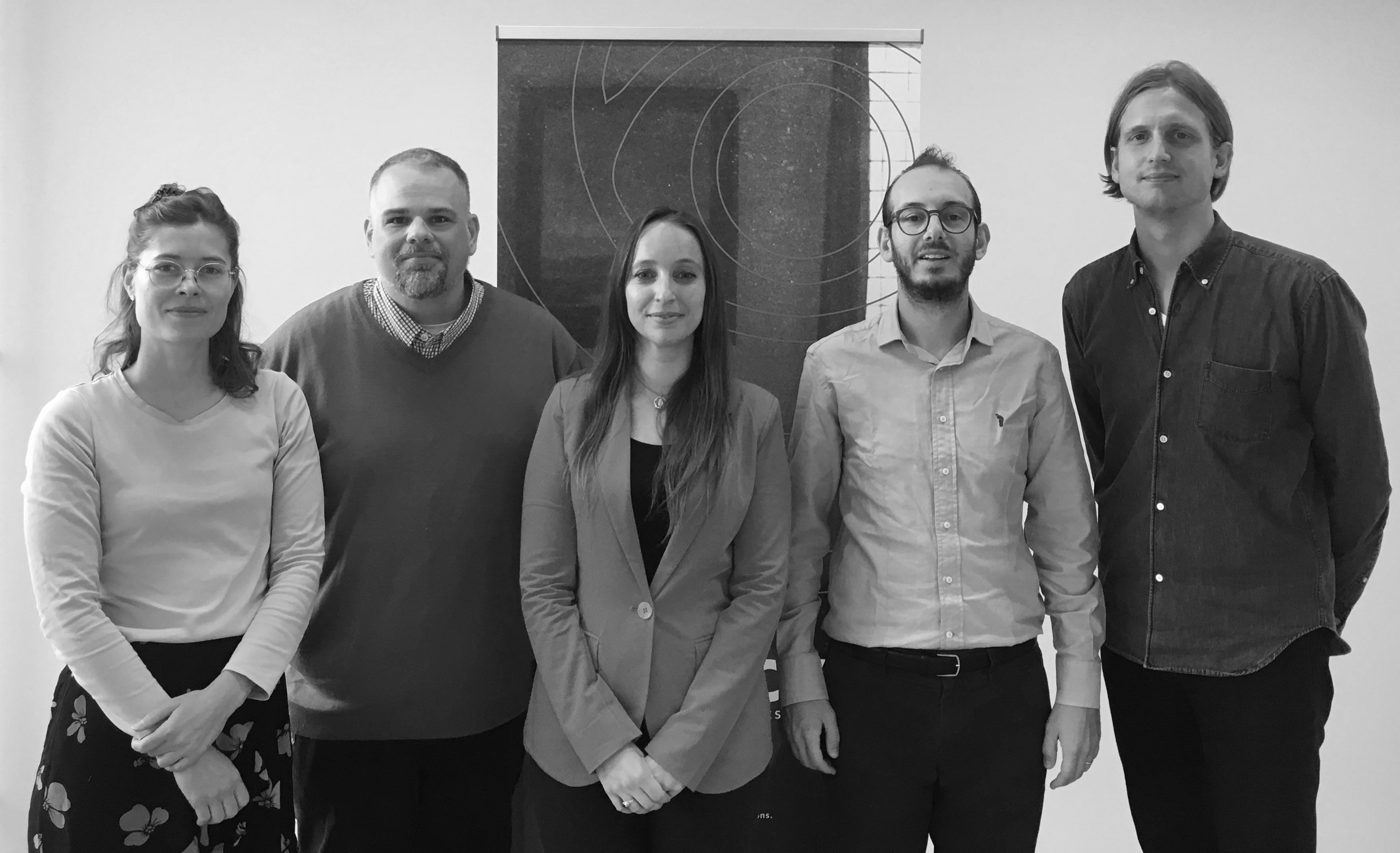Privacy in Early Modern Dresden: Interface of Court, Household and Society, 1541-1586
Throughout the sixteenth century, Dresden rose to prominence in the broader European context through the influence of the Electors of Saxony. Established by Moritz of Saxony (1521-1553) and flourishing under the cultural and social influence of August (1526-1586) and Anna of Saxony (1532-1585), the city of Dresden as the Saxon capital became a vital civic entity that fostered economic and agricultural overhauls, scientific knowledge, religious identities, political power, and scholarly discourse. Dresden is an emblematic context to explore notions of privacy and the private in the early modern period, as it underwent a range of transformations – religious, political, legal infrastructural, and cultural – that reconfigured the thresholds between the private and the public. The case team works to tackle the question of privacy in sixteenth-century Dresden by implementing an interdisciplinary, collaborative research approach. The team members investigate a diverse corpus of manuscripts and printed sources to explore multiple dimensions of privacy:
- Paolo Astorri works on the notion of clandestine marriage in the context of the Reformation. Luther proposed a novel definition of clandestine marriage which included not only marriages contracted without the necessary formalities, as in the Catholic Church, but also marriages without parental approval. This definition was very influential and left an important mark in the sixteenth-century theological and legal debates. He is currently working on the Consultationes constitutionum saxonicarum.
- Søren Frank Jensen focuses on the role of religion at the Dresden court. How do the court preachers articulate notions of privacy in their sermons, biblical interpretations, and dogmatic writings? His ongoing PhD project centres on Nikolaus Selnecker’s interpretations of the Psalms.
- Natacha Klein Käfer is exploring private networks of knowledge at the Dresden court. Looking at how Anna and August of Saxony communicated with alchemical, medical, and astrological specialists and how they collected and traded secrets gives us a privileged glimpse at how privacy, secrecy, and knowledge networks were entangled in the early modern period.
- Natalie P. Koerner’s work is dedicated to tracing notions of privacy in spaces of labour. Particularly, Anna’s and August’s spaces of experimental knowledge production, the alchemical laboratory and the medicinal distillery, engendered a number of spatial and social thresholds that granted opportunities for undisturbed periods of voluntary seclusion and work that was not directly part of their representative roles. Mining also provides ample spatial configurations that allowed for privacy.

Depictions of Moritz and August of Saxony in the “Fürstenzug” or “Procession of Princes” mural in Dresden
SELECTED ACTIVITIES AND PRESENTATIONS:
- Paolo Astorri, La définition du mariage clandestin durant la Réforme luthérienne, Journées internationales de la Société d’histoire du droit, Lausanne, 02 June 2023
- Natacha Klein Käfer, “Healing Dialogue: Controversial Healing Prayers in August of Saxony’s Private Manuscript”, Practices of Privacy: Vestiges of Dialogue and Its Places, Rome, December 1, 2022.
- Paolo Astorri, Parental Authority and Clandestine Marriage in Reformation Germany, INTERACTIONS, EXCHANGES, AND TRANSFORMATIONS European Legal Traditions and their Impact on the Construction of Gender in a Global Context, Vancouver BC, 18-19 November 2022.
- Natacha Klein Käfer, “A History of Touch: Proximity in Early Modern Medicine”, Ranges of Proximity: Approaching Narratives in Medicine, Lund University, October 4, 2022.
- Natacha Klein Käfer, “Natural, Unnatural and Supernatural Bodies in the Early Modern Period”, lecture at Lund University (online), January 26 and September 9, 2022.
- Paolo Astorri, Clandestine Marriage Redefined: Canon Law in the works of the Lutheran Reformers, the 16th International Congress of Medieval Canon Law in St. Louis (Missouri), 17-23 July 2022.
- Alchemy and Mining in Early Modern Saxony (online seminar), with presentations by Tara Nummedal and Sebastian Felten, February 15, 2022.
- Natacha Klein Käfer, “Privacidade e segredos alquímicos em laboratórios do século XVI”, lecture at Universidade Estadual do Ceará, November 17, 2021, https://www.youtube.com/watch?v=67wgWlIiKjA
- Natalie P. Koerner, “The Renaissance Interior and August of Saxony: Mobility, Privacy, Client-as-Designer”, lecture at the Royal Danish Academy, May 12, 2021.
- Privacy at the Dresden Court under Anna and August of Saxony (1541-86) (online seminar), with presentations by Katrin Keller, Alisha Rankin, and Stephan Hoppe, January 20, 2021.
- Dresden Masterclass with Hellen Watanabe-O’Kelly, December 9, 2020.
- Natalie P. Koerner, “Privacy and the Craft of Thought in Dresden (1541-1586)”, Freedom of Thought and Privacy (online), November 12, 2020.
- Natacha Klein Käfer, “Private Spaces, Secret Practices: Gender and Concealment in Alchemical Laboratories under Anna and August of Saxony”, Secrets of Matter, Matters of Secrecy: Concealing (al)Chemical Knowledge from Ciphers to the Military-Industrial Complex (SHAC Postgraduate Workshop), June 3, 2021.
- Søren Frank Jensen, “David for Kings and Commoners? Court Preacher Nikolaus Selnecker’s (1530-92) Interpretation of the Psalter”, LUMEN Conference Reformation and Everyday Life (virtual), June 2,
- Paolo Astorri, “Parental Authority, Privacy, and the Reformation of Marriage”, LUMEN Conference Reformation and Everyday Life (virtual), June 1, 2021.
- Natacha Klein Käfer, “Rituals to Regulate Private Lives: Negotiating Marital Power through Love Spells”, LUMEN Conference Reformation and Everyday Life (virtual), June 1, 2021.
- Paolo Astorri, “Parental Authority, Privacy, and the Reformation of Marriage”, RefoRC annual conference (virtual), May 6, 2021.
- Natacha Klein Käfer, “Love Spells and the Negotiation of Marital Power”, RefoRC annual conference (virtual), May 6, 2021.
- Natacha Klein Käfer, “Sexual Privacy and Unwanted Pregnancies in the Early Modern Period” (with Natália da Silva Perez), The 67th Annual Meeting of the Renaissance Society of America (virtual), April 22, 2021.
- Søren Frank Jensen, “Mapping The Book of Psalms at the Electoral Court of Saxony 1553-86”, Privacy at Court? A Reassessment of the Public/Private Divide within European Courts (1400-1800) (virtual), December 11, 2020.
- Dustin Neighbors, “Maximilian II's Visit to the Court of Elector August of Saxony: Private Politics or Politics of Privacy?”, Privacy at Court? A Reassessment of the Public/Private Divide within European Courts (1400-1800) (virtual), December 11, 2020.
- Paolo Astorri, “The Reform of Clandestine Marriage Law in Sixteenth-Century Lutheran Saxony”, Maastricht Ius Commune Workshop on Comparative Legal History, November 26, 2020.
- Søren Frank Jensen, “King David in Post-Reformation Biblical Interpretation”, Political Theology: Reflections On a Contested Concept, PhD seminar, University of Copenhagen, November 12, 2020.
- Paolo Astorri, “Normative Knowledge in the Making: The Case of the Consultationes constitutionum saxonicarum (1599-1601)”, Practices of Privacy Online Symposium, April 24-May 31, 2020.
- Natacha Klein Käfer and Dustin Neighbors, “Anna of Saxony: Private Endeavors with Public Consequences”, Centre for Privacy Studies seminar, November 20, 2019.
- Research trip to Dresden archives (November 2019).
PUBLICATIONS:
- Privacy in Early Modern Saxony, DeGruyter (in editorial process).
- Natacha Klein Käfer, “Contingent Privacies: Knowledge Production and Gender Expectations from 1500 to 1800” in Women’s Private Practices of Knowledge Production in Early Modern Europe, eds. Natacha Klein Käfer and Natália da Silva Perez, Palgrave MacMillan (forthcoming, under contract).
- Dustin Neighbors, “Privacy and the Private within European Court Culture.” The Court Historian 28:1 (2023): 1–17.
- Paolo Astorri, “The Redefinition of Clandestine Marriage by Sixteenth-Century Lutheran Theologians and Jurists”, in Law and History Review, Vol. 41 issue 1 (2023), 65-92.
- Dustin Neighbors and Natacha Klein Käfer, “Zones of Privacy in Letters between Women of Power: Elizabeth I of England and Anna of Saxony”, Royal Studies Journal 9:1 (2022) 60-89.
- Dustin Neighbors, “Beyond the Public/Private Divide: New Perspectives on Sexuality, Hospitality, and Diplomacy within Royal Spaces.” Royal Studies Journal 9:1 (2022) 1–17.
- Natacha Klein Käfer, “Personal gift-giving: attempts at intimacy in Anna of Saxony's letter exchanges”, Privacy in Early Modern Correspondence, eds. Michael Green and Lars Cyril Nørgaard, Brepols (accepted).
- Paolo Astorri, Lars Cyril Nørgaard, “Normative Knowledge and Textual Transmission: Observations on the Consultationes Constitutionum Saxonicarum”, KNOW: A Journal on the Formation of Knowledge (under peer review).
- Natacha Klein Käfer, “Epidemics and the Issue of Private Knowledge”, Privacy Studies Blog, May 2020.
- Natacha Klein Käfer, “Privacy and Pandemics”, Privacy Studies Blog, May 2020.


